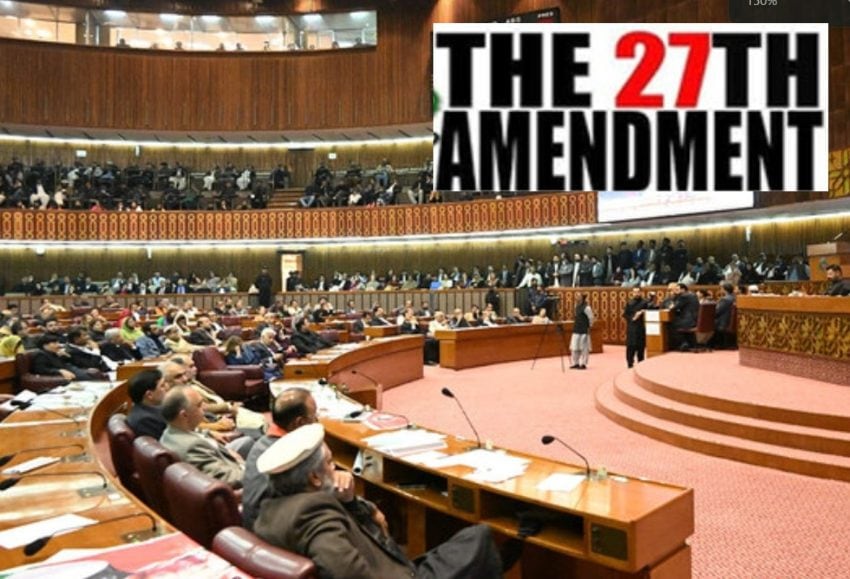ISLAMABAD – A day after its approval in upper house of Parliament, 27th Constitutional Amendment Bill is set to be tabled in National Assembly today on Tuesday.
National Assembly session will start at 11am today and according to the 11-point agenda issued, the amendment bill will take center stage. Law and Justice Minister Senator Azam Nazeer Tarar will formally present 27th Constitutional Amendment Bill for final approval, a move expected to draw heated debate from both treasury and opposition benches.
Political analysts predict charged atmosphere, given amendment’s sensitive nature and the rifts it has already caused among parties in the upper house.
Federal Minister for Education Khalid Maqbool Siddiqui is set to introduce two key bills, King Hamad University of Nursing and Associated Medical Services Bill, 2025, and the Danish Schools Authority Bill, 2025, both seen as part of the government’s broader reform push in the education sector.
With an explosive agenda and mounting political tension, all eyes are now on Parliament, where Tuesday’s session is expected to set the tone for the country’s next major political chapter.
27th Constitutional Amendment Bill
Parliament is witnessing one of the most explosive constitutional showdowns in decades as the 27th Constitutional Amendment Bill races through the legislative process.
The bill introduces restructuring of Article 243, replacing Chairman Joint Chiefs of Staff Committee (CJCSC) with a newly created post, Chief of Defense Forces (CDF), effectively positioning Army Chief as the supreme constitutional commander of Pakistan’s armed forces.
Under these tweaks, President would appoint the Army, Navy, and Air Chiefs based on the Prime Minister’s advice, consolidating top defense appointments under civilian control. The proposed changes go far beyond the military.
The amendment also envisions the creation of a powerful Constitutional Court, major revisions to judicial transfer rules, and sweeping adjustments to the National Finance Commission (NFC) Award, the framework that determines how federal revenues are distributed among provinces.
Observers warn that the NFC revisions could shake Pakistan’s federal balance, potentially altering the fiscal autonomy that underpins relations between the center and provinces.
Opposition lawmakers staged protest, chanting slogans, tearing up copies of the bill, and storming out of the House as Law Minister Azam Nazeer Tarar presented the legislation. Despite protest, 64 members have voted in favor of the motion, none against, with more than two-thirds of the total membership voting in favor.
A group of former senior judges and constitutional lawyers have written a scathing letter to Chief Justice Yahya Afridi, warning that the proposed law would “permanently strip the Supreme Court of Pakistan of its constitutional powers.”
Under Pakistan’s Constitution, an amendment requires two-thirds majority approval in both the Senate and National Assembly. The Constitution, adopted in 1973, has undergone more than two dozen amendments, each reflecting power struggles between civilian rulers, the judiciary, and the military establishment.
The 27th Amendment follows last year’s 26th Amendment, which gave Parliament a direct role in appointing the Chief Justice and set up a senior judges’ panel for constitutional cases — reforms critics said weakened judicial independence.
PTI Senator Saifullah Abro helps Govt secure Two-Thirds Majority for 27th Amendment














